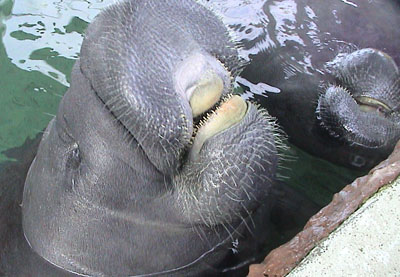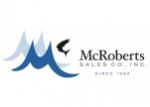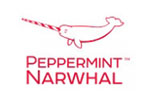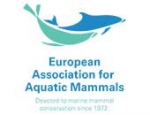
Home
IMATA'S Frequently Asked Questions
Membership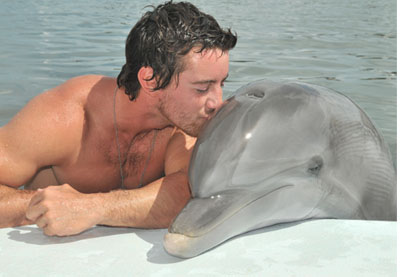
I applied for Active/Professional level and haven't heard anything, when can I access my benefits?
Active and Professional memberships take four to six weeks to process. The reason for this is:
- First we need both endorsements before we can process your application. Please contact your chosen endorsers and confirm if they have responded. You may need to replace an endorser if they are not in good standing or not at Professional or Active level themselves.
- Once both of your endorsers have approved you, your application gets sent to the IMATA Board. Each member of the Board then gives their approval.
- After the final approval you will be sent an E-mail letting you know how to proceed with payment. This entire process may take over one month.
I didn't receive an E-mail telling me how to proceed with payment, what do I do?
Your application may still be in queue, and therefore that E-mail has not been sent yet. Also, please check your spam folder, the E-mail might have gone there. Otherwise, please contact the Education & Membership Services Chair via info@imata.org and we will personally assist you.
I forgot my username/password, what do I do?
Please click HERE and select Reset Your Password from the bottom of the Login box.
I am a member and did not receive an E-mail notice that voting began. What should I do?
Please check your spam folder, the E-mail might have gone there. You will also see a Voting link in the Member's Area during any open voting period if you are a voting member. Otherwise, please contact the Nominations & Elections Chair via NominationsElections@IMATA.org and they will personally assist you.
Why didn't I receive my Soundings?
Beginning 31 January 2013, all new and renewed memberships will receive their Soundings subscription via our online portal at www.imata.org. In concert with this upgrade to our digital capabilities, new and renewing members will no longer be receiving a hard-copy subscription of Soundings. The migration to the digital delivery of Soundings will be complete for the entire membership by 31 December 2013.
Why do my username and password not work in the Trainer's Forum?
Your login permissions are put in place immediately upon payment of your membership dues. If you are having a problem logging into the site or the Trainer's Forum, please contact us at info@imata.org and we will look into it.
Careers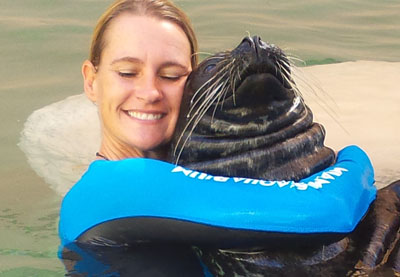
Do I have to have a college degree?
Simply put, the answer is no; you don't HAVE to have a college degree. Will a degree be advantageous? Definitely! A degree will enhance your knowledge and understanding of your career. There are numerous facilities that are unwilling to hire without a degree or a degree in progress. Usually, the only away around this requirement is to have a substantial amount of applicable experience. Realistically, a college degree is very important.
How can I become a Dolphin Trainer?
The International Marine Animal Trainers' Association, IMATA, is a professional group composed of persons active in the marine animal field and other individuals who are interested in marine mammals.
IMATA is dedicated to the advancement of its profession through improved training and husbandry techniques, increased communications among various zoo and aquarium professionals, and the promotion of public awareness through education.
Choosing a career path and acquiring a position requires a certain amount of thought, research, and preparation no matter what your field of interest happens to be. IMATA has prepared the following information to assist you in making some decisions about this line of work.
How do I become more involved?
Fortunately, there are a number of ways to become involved in the marine animal community. It is important to visit facilities and learn their operations, resources, and procedures. This may give you a better idea of the organizations with which you would like to work. On a more national level, you should consider joining at least one of several professional organizations. The best way to learn about job opportunities is to become a member of an established reliable professional organization. For instance, IMATA, like other professional organizations, publishes a quarterly magazine, Soundings, which includes not only current information but job availabilities as well. IMATA also provides members with current job and internship listings on its Web site.
How do I prepare for my career?
There are many ways to prepare yourself for the challenges and opportunities that lie ahead of you! The marine mammal field is constantly growing and changing. It is important to do as much research as you can. Take classes that will advance your public speaking skills and knowledge of the animals and environment in which you will be working. If you are going to be working with animals, the abilities to think clearly, quickly, and with common sense are unspeakably important. Physical fitness is also a definite prerequisite. You will probably spend a great deal of time in or near an aquatic environment making strong swimming skills essential. In addition, if you are not already certified, you should probably take SCUBA lessons. Most facilities require that you pass a swim test and be SCUBA certified before they will hire you.
Should I volunteer or intern?
It is relatively easy to gain practical experience and knowledge before you professionally enter the field of your choice. Volunteering and interning provide you with experience in a hands-on setting before you make your final decision on which career to pursue. It is important to prepare yourself for a paid or unpaid position, it's a foot in the door and a step in the right direction!
What positions are available to me?
Within marine science related courses lie many exciting and challenging jobs ranging from a marine animal trainer to a zoo keeper or from an oceanographer to an environmental scientist. In order to develop a better understanding of the different career opportunities available to you, listed below and briefly described are a number of positions in the marine sciences.
MARINE BIOLOGY
A marine biologist is engaged in all studies of marine organisms from whales to algae. They often study nearshore and inshore communities as well as the open oceans.
OCEANOGRAPHY
Oceanography applies to many different areas which study the oceans and the processes taking place within them. It is a complex field that has many divisions. A chemical oceanographer researches the chemical changes at work in the sea, tracing pollution, and dealing with its removal and prevention. A geological oceanographer studies shorelines, ocean floors, sediment layers, and mineral content. Physical oceanographers study the physical properties of the oceans, currents, tides, and waves and how they are affected by atmospheric events. A biological oceanographer studies animal communities in the open ocean.
ZOOLOGY
Zoology is the study of all animals, their evolution and their scientific classifications. Zoologists often specialize in the study of one particular species.
ECOLOGY
Ecology is the study of relationships between organisms, their environment, and how their communities are affected by human activities such as pollution and development.
ANIMAL BEHAVIOR
Animal behavior involves the study of an animal's natural behavior and evolution. This type of research can be important in the management of animals and their habitat.
VETERINARY MEDICINE
Veterinary medicine involves rehabilitating or caring for stranded or orphaned animals. Veterinarians diagnose medical conditions, perform surgery, and prescribe and administer medication.
ZOOKEEPING
Zookeeping involves the basic care required to maintain the health of a collection of animals. A zookeeper may work with a variety of different animals including mammals, birds, reptiles, and fish. Zookeepers are responsible for cleaning animal enclosures, feeding the animals, and monitoring animal behavior.
REGULATORY CAREERS
Environmental issues have become a major focus of interest to the public, government, and industry in recent years. Within the marine sciences, there are many careers that deal with the regulatory aspects of the field. The agencies may study animal populations, protection of animal environments and populations, or permit regulation. This aspect of animal preservation is an essential part of ensuring species survival.
MARINE MAMMAL TRAINING
Marine mammal training is a conditioning process through which animals receive mental stimulation, physical exercise, and husbandry care. Animal trainers are responsible for the total mental and physical health of the animals in their care. This includes the hands-on work with the animals as well as pool maintenance, water quality, and diet preparation. Marine mammal trainers often participate in the production of educational programs for visitors and guests. Ultimately, it is education that allows the public to develop an understanding and respect for marine life which will help to ensure its survival.
Policies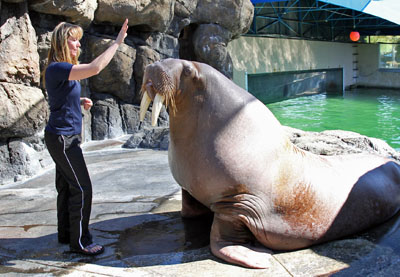
What is IMATA's Privacy Policy?
Last updated: 2 April 2025
The International Marine Animal Trainers' Association (IMATA) is committed to your right to privacy and to keeping your personal information private. This Privacy Policy governs the URL http://www.imata.org/ (hereafter the "Site"). By accessing this Site, you agree to the terms set forth in this Privacy Policy.
This Site is owned and operated by IMATA for the benefit of its members and other visitors interested in marine animal training. Our mailing address is PO Box 4212, Copley, OH 44321. IMATA reserves the right to modify or amend this Privacy Policy at any time and for any reason, without notice. You should check this Privacy Policy each time that you visit the site to identify changes made since your last visit. By continuing to access or use the Site, you agree to be bound by any modifications to this Privacy Policy.
How We Collect Information About You:
Information You Voluntarily Provide
In addition to membership information, IMATA collects and maintains certain personal information about you when you send us an E-mail or complete any of our online forms, such as when you request information from us, make a donation, participate in a chat, request to become a member, respond to surveys, or register for events. Such information may include your name, mailing address, and E-mail address; it may also include the E-mail addresses of those to whom you forward IMATA electronic content, and any other information collected in the forms. You may be asked to provide credit card information to become a member of IMATA, contribute to IMATA, or purchase certain information or materials from IMATA.
Information We Gather Automatically
IMATA.org also collects certain other information that cannot identify you personally when you visit our web site. This information includes your IP address and your domain name. IMATA.org logs these IP addresses and domain names, and aggregates them for system administration and to monitor the use of our site. We use the aggregated information to measure the average time spent on our site, the number of pages viewed, the number of visits to our site, and various other site statistics. This monitoring helps us provide a more useful and engaging online experience to, and helps us improve the quality of our content.
IMATA uses cookies in order to make the results available for your on-site searches. Cookies are used in the login process to the Members Only section of the Site. The cookies that control the login process expire after 24 hours, unless you use "Member log out", which removes the cookie immediately. A cookie is a small file that is sent out by a web site, accepted by the user's browser, and placed on the user's hard drive. You can set your browser to warn of cookies being placed, and then chose which cookies you want to accept. IMATA does not match any information gathered by cookies with personal information you may have voluntarily submitted to IMATA.
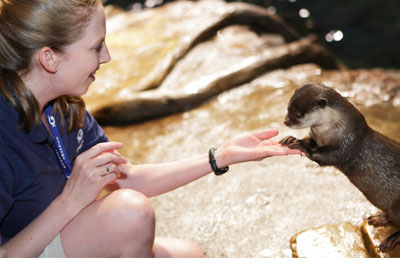 Use of Information
Use of Information
We may use the information you voluntarily provide to contact you regarding issues that we believe may be of interest to you, to keep you updated regarding IMATA events, and to invite you to support our events. We may also send such information to the people whose e-mail addresses you provide when forwarding IMATA electronic content. When we do so, our sole intent is to enlarge our family of informed animal training advocates and organizational supporters. Every recipient of our electronic communications can quickly and easily 'opt out' of future communications by following the instructions on any electronic communication we send. IMATA will never provide your information to any other organizations or sponsors. IMATA is committed to the protection of its members' privacy.
Other
IMATA may provide links to other web sites not affiliated with IMATA. IMATA attempts to link only to those web sites which also respect a visitor's privacy and the goals of IMATA. However, IMATA cannot be responsible for the content or policies of third-party web sites. Please check with these third-party organizations or companies for their specific privacy policies. If you find inoperable links or are concerned about any of the sites to which IMATA currently links, please inform IMATA by contacting us at info@imata.org.
Security
IMATA uses generally accepted, industry-standard security systems, software, and encryption technologies to protect against unauthorized access to IMATA servers, equipment, and other components of our online presence. This includes using industry-standard security systems to protect credit card processing information.
Contacting IMATA
If you would like to contact IMATA about correcting information we might have collected, or if you have any questions about this Privacy Policy, please e-mail us at info@imata.org or write to us at: PO Box 4212, Copley, OH 44321
What is IMATA's Refund Policy?
All merchandise purchased at IMATA may be returned for a full refund within 30 days of the original delivery. Returned merchandise must be unopened to receive full credit. If the item is defective, please provide a written statement describing the damage and what action you would like to be taken (refund money or send another item). No returns will be accepted after 30 days. We will credit you in the same manner as your original payment within seven (7) days of receiving the returned item.
Customer Service Contact:
E-mail - info@imata.org




